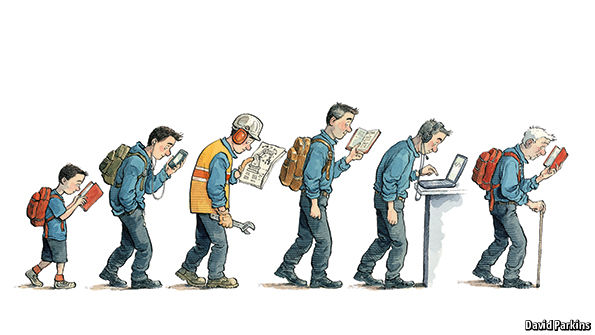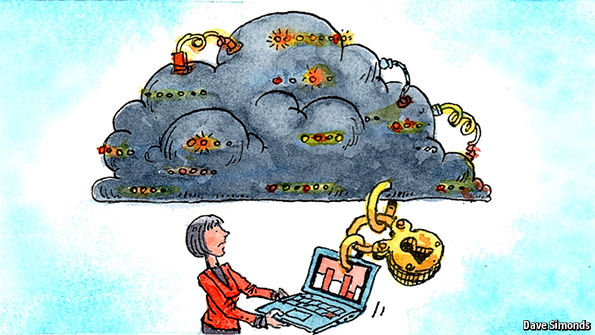In retreat
The multinational company is in trouble
from The Economist

Donald Trump dislikes multinationals which are shipping jobs and factories abroad and wants to domesticate them
Mr Trump is aggressively attacking multinational companies, which were already in retreat well before the populist revolts of 2016.
Multinational firms employ only one in 50 of the world’s workers. But a few thousand firms influence what billions of people’s lives.
They boomed in the early 1990s. Investors liked global firms’ economies of scale and efficiency. It was a golden age.
For many companies, global reach has become a burden, not an advantage.
With low tax bills, local firms can steal, copy or displace global firms’ innovations without building costly offices and factories abroad.
Governments want global firms for getting wider supply chains, higher R&D abilities and huge amount of tax revenue.
Too big multinationals should shrink or “localise” their businesses, or become “intangible” to survive.
The retreat of global firms will give politicians a feeling of greater control, but it also will make the value of stockmarkets unstable.
The demise of global firms may make the world seem fairer. But it will mean rising prices, diminishing competition and slowing innovation.
| 2017/02/06
| Business, Summary
|
Learning and earning
Equipping people to stay ahead of technological change
from The Economist

The combination of education and innovation led to a remarkable flowering of prosperity.
Working lives are so lengthy and so fast-changing that people must be able to acquire new skills throughout their careers.
The lifelong learning that exists today mainly benefits high achievers and is therefore more likely to exacerbate inequality.
The classic model of education is breaking down. One reason is the need for new and constantly updated skills.
Pushing people into ever-higher levels of formal education at the start of their lives is not the way to cope.
On-the-job training is shrinking. Self-employment is spreading. But taking time out later in life to pursue a qualification is not easy.
Massive open online courses (MOOCs) offer cheap, short programmes that make their students more employable.
Online learning requires some IT literacy, yet one in four adults in the OECD has no or limited experience of computers.
If new ways of learning are to help those who need them most, policymakers should be aiming for something far more radical.
A curriculum needs to teach children how to study and think. Which will make them better at picking up skills later in life.
The biggest change is to make adult learning accessible to all. One way is for citizens to receive vouchers that they can use for training.
Industry can help by steering people towards the skills it wants and by working with MOOCs and colleges to design courses that are relevant.
Governments need to slash the licensing requirements and other barriers that make it hard for newcomers to enter occupations.
To keep the numbers of those left behind to a minimum, all adults must have access to flexible, affordable training.
| 2017/01/25
| Business, Summary
|
Cloud computing
The sky’s limit
from The Economist

Cloud computing industry is now blooming. Amazon is one of disruptive newcomers. If Amazon’s cloud-computing unit were a stand alone company, it would be worth as much as Dell and EMC combined. Cloud services are more secure than private computers because providers know better how to protect their computing system against hackers.
But there is one problem. Cloud computing tend to “lock-in” customers in one service because once a user starts using the service, from data storage to email, it will be difficult to move data from one service to another.
Being locked in to a provider is risky because…
– firms can start to tighten the screws by increasing prices.
– if a cloud provider goes bust, its customers may have trouble retrieving their data.
Some politicians wants to force cloud providers to ensure that data can be moved between them. But rigid rules will inhibit innovation in what is still a young industry. The history of computing suggests that common standards may well emerge naturally in response to customers’ demands.
Firms that use more than one cloud provider to host their data are less vulnerable. General Electric and Walmart have ability to guard their most valuable data. Google is better than others at enabling users to move data between providers.
| 2015/10/18
| Science & Technology, Summary
|



